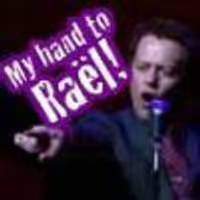Award Winning Playwright Almost Slaps a Theatre Patron (and what that apparently says about our theatre)
#50Award Winning Playwright Almost Slaps a Theatre Patron (and what that apparently says about our theatre)
Posted: 12/11/15 at 2:21am
MisterMatt, it is racist, and here's why.
As theatre has been generally established as a cultural obligation for the old, white, and rich, there's an ownership and entitlement that comes with that. There's a perception that theatre is high art and that it must be revered, consumed in total silence and rapture. Meanwhile, theatre as an artform practically begs vocal, alive, present response. For this and countless other reasons, theatre is stuck.
Theres a lack of inclusivity. More diverse audiences, people of different ages, races, classes, beliefs, sexualities longing to feel reached and understood but, as most theatre caters to a select group, they haven't really been invited to the party yet. White people have claimed the theatre and feel fully entitled to dictate how it should be enjoyed.
So whether it's subconscious or not, there's a notion of "You're in my house, obey my rules" that white people associate with theatre going. Seeing Ms. Morisseau, a younger woman of colour who also happens to respond quite vocally and physically to the work she experiences, no doubt set off this entitlement. The woman Morisseau encountered is in no way in the right to police how others may react to the theatre. You can also argue that her comment about the gum is tied into a racist stereotype but that's obviously inconclusive.
Telling as well that most of you responding are yourselves white. For myself? There are nooks and crannies to my privilege so subtle that I'm unaware of them. But I'm learning. And if we want to be allies, it behooves us to learn as much as we can.
And let's cut the sh!t about the "She should be grateful for the free ticket" thing. Giving Morisseau a ticket does not mean Jane owns her now. Was Morisseau's response a bit aggressive? Maybe. But is she tired of white privilege and the oppression and casual racism she faces on a daily basis? Most certainly. I know the article struck me as arrogant the first time I read it.... But the more I read it over, the less I thought that.
Updated On: 12/11/15 at 02:21 AM#51Award Winning Playwright Almost Slaps a Theatre Patron (and what that apparently says about our theatre)
Posted: 12/11/15 at 5:18am
Doesn't matter the race of the person, anyone who decides the make it all about them inside the theatre is usually the most obnoxious one in the theatre. That applies whether it's the usual terrible manners we can't stand in the theatre, or that overly-reactive one in the crowd that always knows they're drawing attention, but doesn't care as long as they're having a great time. One of my friends, probably the whitest guy you'll ever meet, by the way, has long since stopped being my plus-one because of said attention. We know that actors get a kick out of it, because it's fun to see that in the audience, but for the paying crowds around you, it always the total opposite. (On a related note, congrats that the actor gesticulated towards your obnoxious behavior. That makes it all worth it'll doesn't it?)
"Hey little girls, look at all the men in shiny shirts and no wives!" - Jackie Hoffman, Xanadu, 19 Feb 2008
#52Award Winning Playwright Almost Slaps a Theatre Patron (and what that apparently says about our theatre)
Posted: 12/11/15 at 8:00am
Adam's analysis is absolutely terrific; I think the readers should also keep in mind Morisseau's cis-privilege and native-born privilege (and other privileges that I may be forgetting because I don't possess good-memory privilege).
#53Award Winning Playwright Almost Slaps a Theatre Patron (and what that apparently says about our theatre)
Posted: 12/11/15 at 8:11am
There's so much that's problematic with Kras' post, it's difficult to know where to start. So let's start at the very beginning.
"As theatre has been generally established as a cultural obligation for the old, white, and rich..." Really? All theatre? Including Asia, Africa, and Latin America? Are you speaking universally about the very intrinsic nature of theatre itself?
"Inclusivity" is a ridiculous and recently invented word that doesn't make any improvements on the pre-existing "inclusiveness" or the more accepted "inclusion," words that have served their purpose extremely well for ages and don't need to be replaced by people who are less interested in knowing their own language than they are in flapping their gums. As for the rest of this paragraph, perhaps you live in an Amish community but in urban centers, there's an ever-increasing wealth of diversity in the theatre, both in subject matter and artistic personnel. (See the Public Theater, Trinity Rep, Pan Asian Rep, Ma-Yi Theater Company, National Asian American Theater Company, East West Players, Silk Road Rising, National Black Theatre, Black Spectrum, Black Moon, Black Ensemble Theatre, Karamu, Negro Ensemble, Penumbra, Repertorio Espanol, INTAR, Pregones, GALA, Native Voices, American Indian Theatre Ensemble and hundreds more across the country). If you can't see it, then you aren't looking. Celebrate it, extend it, continue it, but don't pretend it doesn't exist.
"And let's cut the sh!t about the "She should be grateful for the free ticket" thing. Giving Morisseau a ticket does not mean Jane owns her now." Does being grateful now mean the same thing as being owned? Are manners, civility, and gratitude for gifts now included among the white man's hegemony?
Updated On: 12/11/15 at 08:11 AM#54Award Winning Playwright Almost Slaps a Theatre Patron (and what that apparently says about our theatre)
Posted: 12/11/15 at 1:55pm
Needing to concentrate to hear the actors is not a characteristic of white people. Asking someone to please be less intrusive and distracting is not a white activity.
Noise in a theatre at times when the actors are still talking (and not leaving space for a response) is actually quite similar to smoking in an indoor space. In some sense, smokers have a right to smoke if they want to and non-smokers have a right to breathe clean air. But both can't happen in the same space. Since someone smoking among others forces others to breathe in the smoke, many societies have decided not to allow smoking when it restricts the ability of those who don't want to or can't handle it to breathe properly.
Noise is a theatre is similarly intrusive on all those nearby - they cannot *not hear* someone who expresses their thoughts out loud. So expressing one's thoughts loudly while the actors are speaking forces others to listen to the loud audience member's response instead of focusing on their own thoughts. For that reason, the 'right' to enjoy theatre loudly and the 'right' to enjoy it quietly are not equivalent things that should be treated as equally valid. The audience member who enjoys responding loudly can still enjoy her own thoughts if she doesn't express them out loud, but by expressing them out loud, she prevents others from enjoying their own thoughts/reactions to the theatre that they are seeing, and worse, possibly prevents them from hearing it (or all of it).
None of these issues have anything to do with race, but entitlement (to make the experience all about one audience member rather than allowing everyone to have a chance to enjoy it) certainly seems to be playing a role. And the entitlement in this story was displayed most egregiously by the author of the article.
#55Award Winning Playwright Almost Slaps a Theatre Patron (and what that apparently says about our theatre)
Posted: 12/11/15 at 2:16pm
M. Kras said " Seeing Ms. Morisseau, a younger woman of colour who also happens to respond quite vocally and physically to the work she experiences, no doubt set off this entitlement."
I firmly disagree. In any theater, at any performance of any show, there will be people shushing others, asking them to be a little more quiet. Don't make this into anything about entitlement. I bet most of us here at one time or other, were bothered by others making what we think is too much noise.
#56Award Winning Playwright Almost Slaps a Theatre Patron (and what that apparently says about our theatre)
Posted: 12/11/15 at 2:25pm
If they are next to you making noise and you can see they are a POC, you are entitled. If they are behind you making noise and you don't know their race, you are just annoyed. I'm not sure why this is so hard for people to understand.
#57Award Winning Playwright Almost Slaps a Theatre Patron (and what that apparently says about our theatre)
Posted: 12/11/15 at 2:34pm
Ah, white fragility.
#58Award Winning Playwright Almost Slaps a Theatre Patron (and what that apparently says about our theatre)
Posted: 12/11/15 at 2:56pm
"If they are next to you making noise and you can see they are a POC, you are entitled."
Unless this is another one of your "jokes", you must be kidding.
#59Award Winning Playwright Almost Slaps a Theatre Patron (and what that apparently says about our theatre)
Posted: 12/11/15 at 2:57pm
Jane2 said: "Unless this is another one of your "jokes", you must be kidding."
You should assume I'm always joking, I think. You'll be right more often than not.
#60Award Winning Playwright Almost Slaps a Theatre Patron (and what that apparently says about our theatre)
Posted: 12/11/15 at 3:06pm
got it!
#61Award Winning Playwright Almost Slaps a Theatre Patron (and what that apparently says about our theatre)
Posted: 12/11/15 at 3:07pmBoth parties in this situation annoy me, and I see this in no way representative of any greater issue other than the fact that people are annoying everywhere.
#62Award Winning Playwright Almost Slaps a Theatre Patron (and what that apparently says about our theatre)
Posted: 12/11/15 at 3:14pm
And that, Charlie Brown, is the true meaning of Christmas!
smidge
Broadway Legend Joined: 5/16/06
#63Award Winning Playwright Almost Slaps a Theatre Patron (and what that apparently says about our theatre)
Posted: 12/11/15 at 3:15pm
Kad said: "Both parties in this situation annoy me, and I see this in no way representative of any greater issue other than the fact that people are annoying everywhere. "
Boy, this sums up my feelings exactly
wonkit
Broadway Legend Joined: 9/30/08
#64Award Winning Playwright Almost Slaps a Theatre Patron (and what that apparently says about our theatre)
Posted: 12/11/15 at 3:15pm
The minute I see the word "micro aggression" my brain shuts down. I say what I mean and someone else does not have the right to tell me what I intended, only how they reacted. But I have to agree. There was enough rude and presumptuous behavior on both sides.
#65Award Winning Playwright Almost Slaps a Theatre Patron (and what that apparently says about our theatre)
Posted: 12/11/15 at 3:17pm
As a white person, I
#66Award Winning Playwright Almost Slaps a Theatre Patron (and what that apparently says about our theatre)
Posted: 12/11/15 at 3:32pmIn anything, this story should help bring us closer together in the knowledge that people of all races and ages can be obnoxious.
#67Award Winning Playwright Almost Slaps a Theatre Patron (and what that apparently says about our theatre)
Posted: 12/11/15 at 3:43pm
wonkit said: "The minute I see the word "micro aggression" my brain shuts down."
I need a trigger warning for micro-aggressions, too.
#68Award Winning Playwright Almost Slaps a Theatre Patron (and what that apparently says about our theatre)
Posted: 12/11/15 at 3:45pm
Kad said: "In anything, this story should help bring us closer together in the knowledge that people of all races and ages can be obnoxious. "
And sometimes the whiteness just bleeds through the pixels.
#69Award Winning Playwright Almost Slaps a Theatre Patron (and what that apparently says about our theatre)
Posted: 12/11/15 at 4:00pm
haterobics said: "wonkit said: "The minute I see the word "micro aggression" my brain shuts down."
I need a trigger warning for micro-aggressions, too.
"
Me three.
#70Award Winning Playwright Almost Slaps a Theatre Patron (and what that apparently says about our theatre)
Posted: 12/11/15 at 4:02pm
#whitesubscribersmatter
#71Award Winning Playwright Almost Slaps a Theatre Patron (and what that apparently says about our theatre)
Posted: 12/11/15 at 4:10pm
I work at an upscale private medical hotel for patients with pretty serious illnesses. Many of our guests are self-pay, and most of these are wealthy older people, but we also take a lot of patients who are very poor and stay with us on subsidies and financial aid. Many of the poorer patients are not white. And they look poor, white or not. And it's incredible the number of calls I get from distressed wealthy guests about "suspicious people" in the building who, surprise, turn out to be, say, the nice old (GUESS THE RACE) lady whose son has leukemia and was "loitering" in the kitchen. One guest even made such a repeated fuss about another guest (black, poor) "acting up" (approaching people and striking up conversations) that upper management stepped in and made him wear a lanyard with his patient ID on it around his neck. And the same guest that made the fuss was perfectly fine with the other, real troublesome-but-passably-WASPish guest who did exactly the same thing, but was constantly drunk and inappropriate.
Not that we had to tag her, of course. She was, you know, white.
Updated On: 12/11/15 at 04:10 PM#72Award Winning Playwright Almost Slaps a Theatre Patron (and what that apparently says about our theatre)
Posted: 12/11/15 at 4:13pm
"And sometimes the whiteness just bleeds through the pixels."
As do all other colors.
#73Award Winning Playwright Almost Slaps a Theatre Patron (and what that apparently says about our theatre)
Posted: 12/11/15 at 4:38pm
There are a plethora of reasons to write about race in the theatre. There are tons of legitimate issues regarding race in the theatre to be discussed.
I just don't see evidence of those issues in this anecdote. "Jane" seems somewhat bitchy and Dominique seems somewhat aggressive (putting her hand in the woman's face? quickly rising to the point where violence seems possible?).
Hijacking legitimate discussion because you had a confrontation that requires quite a bitch of stretching to justify as being racially-motivated isn't productive. It makes legitimate grievances look petty.
PatrickDennis92
Stand-by Joined: 9/25/12
#74Award Winning Playwright Almost Slaps a Theatre Patron (and what that apparently says about our theatre)
Posted: 12/11/15 at 10:07pm
I call my cat Miss Thing.... All the time. And... she's black. I feel ashamed.
Updated On: 12/12/15 at 10:07 PMVideos









